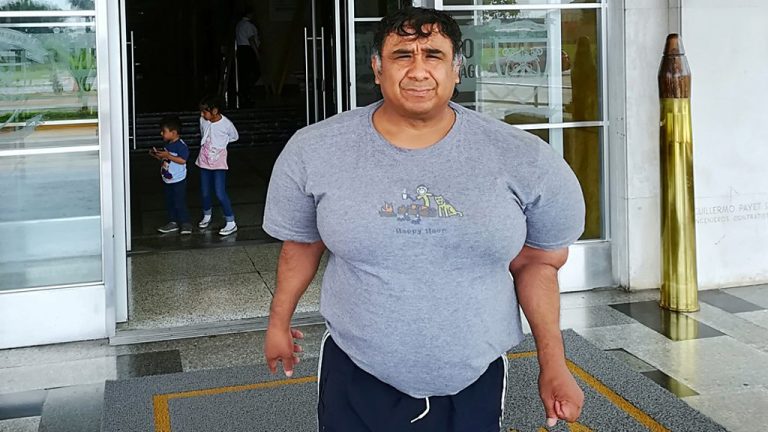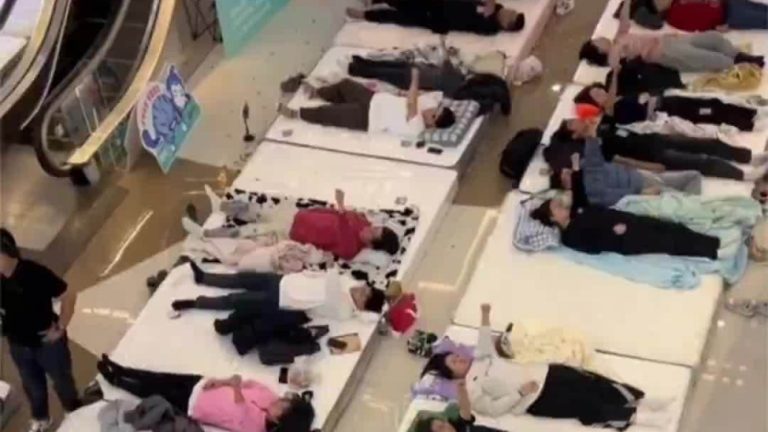In a bid to raise awareness about dementia, UK based healthcare training institute Training2Care has started a new initiative – the Mobile Virtual Dementia Tour.
Feared more than cancer, dementia is a general term referring to the decline in mental ability, marked by memory disorders, personality changes, and impaired reasoning. Sadly, it only receives a tenth of the funding of cancer. Which is why Glenn Knight, chief executive of Training2Care, hopes that more hospital trusts will host the tour and raise awareness about the condition.
The Virtual Dementia Tour isn’t new – it’s been in the US for a decade, and is currently available in 17 countries around the world. It’s been in the UK for two years now, but this is the first time a mobile version is being made available to the public. The tour is designed to take away all the primary senses, allowing participants to experience the troubling states that people with dementia go through every day.

Photo: The Abbeyfield Society
Gloves on the hands eliminate the sense of touch, near vision is blurred using special glasses, and peripheral vision is entirely removed. “We put insoles into their shoes to represent peripheral neuropathy where the nerve endings die in your feet and in your hands,” Knight said. “It makes people with dementia, elderly people, and especially people with diabetes walk with what’s known as a shuffling gait.”
“Then we put sounds into people’s headsets at the right volume for people with dementia because they hear at slightly higher volumes but they also lose the ability to block out sounds,” he added. “Add all these together, this causes the reaction of sub-vocalisation, humming, laughing, shuffling gait, talking to yourself out loud and talking about what you are thinking.”

Photo: Virtual Dementia Tour/Facebook
Different participants react differently to these simulations. When they’re asked to match socks on the bed, some of them repeat the phrase 10 times before doing it – something that is very common in real cases of dementia. Others swear a lot. And according to Knight, the participants don’t even realise how they’re behaving. “We’ve had a nun say the F word twice and the S word once and walk out saying I don’t even know those words.”
Chloe Hamilton, a writer for The Independent, is one of the people who experienced the tour first-hand. “I’m trying to find a sock,” she wrote in her report. “My vision is distorted and my hands are numb. It’s dark. I rifle through a pile of what appear to be bedclothes, desperate to find the sock. A man next to me barking instructions, but I can’t make out any words, only loud noises. With the headphones on, I’m lost in a world of indeterminate noise. The whole experience is terrifying.”

Photo: Daily Record
Dame Gill Morgan, head of National Health Service Providers, called dementia a cruel disease. “It is a cruel disease because your family watch you declining, and they lose the person, but they keep the body,” she said. “Studies show that dementia is now the most feared disease, it is more feared than cancer. It is the thing that people do not want to get when they are older.”
“We really are not fully clear what the biological causes are,” she added. “If you compare it to cancer, and the knowledge that we have about the biology and genetics of the disease, cancer is probably 20 to 25 years ahead.”
“Dementia is the eight biggest killer in this country and it is the only disease that kills you, which has no cure,” said Knight. “Within four years it will be the fourth biggest killer and within ten years number one.”
“People fear things they don’t understand,” PK Beville, the tour’s creator, told Hamilton. “That’s why the Virtual Dementia Tour is so critical. You take the time to see that it’s nothing to be fearful of. It’s something we can treat and care for.” She hopes that by taking the tour, more and more people will be more empathetic towards people with dementia and provide them with better care.
Sources: The Independent, Daily Record













